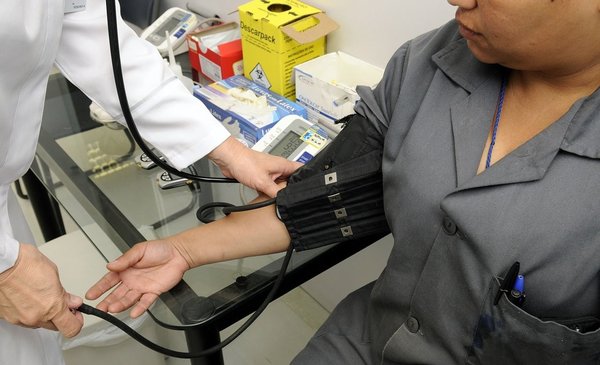
The Ministry of Public Health (MSP) reported that from the 1st of March, face-to-face medical consultations will be compulsorily resumed in public and private providers across the country for general medicine, pediatrics and gynecology, and which a month later will resume all specialties.
Authorities had reported on Tuesday that in the face of the drop in daily cases of covid-19 and the “stabilized number of patients in critical care” was launched one “Standardization plan” for care in health centers, With the aim of resume the attention of face-to-face medical consultations at pre-pandemic levels within 120 days (four months).
This Wednesday, the ministry reported that institutions must present the institutional plan before March 15 for the progressive resumption of care and preventive activity “Without prejudice to the reserves of health resources needed to continue the response to the covid-19 pandemic,” the statement said.
The first consultations that will resume the compulsory presence will be those of general medicine, pediatrics and gynecology from March 1, With no less than three consultations per hour, which will be complemented with instances of telemedicine.
From 1 April, the mandatory face-to-face consultations will be extended to the other specialties of medical care with priority in the care of chronic non-communicable diseases.
On the other hand, the MSP notes that it is expected that, depending on the evolution of the pandemic, by September the “indicators of accessibility and health production” will be reached with levels comparable to those of September 2019.
The president of the Coordinator of Collective Health Care Institutions, Carlos Cardoso, said that this change affects the exceptional measures that were implemented in the most critical departments regarding the cases of covid-19, such as Montevideo , Canelones, Rocha, Sant Josep and Rivera.
“The rest of the departments had a presence with the rules of June 2020, which established up to three patients per hour in person and two telemedicine and then the need to have 25% of free beds in intensive and moderate care. it allows perhaps to return to a method that is already known in other departments that is to give attention through the gaugings that allows to fulfill the activities and to give time so that the vaccines arrive, vaccinate to the health personnel and finish the immunization “, he said in an interview with casual breakfasts.
Institutions hope that by the end of March health personnel will be vaccinated, which adds to the immunization of the population at risk for age. “Reaching 50% of what was expected, community contagion chains would decrease considerably. This would increase the concurrence of people in consultations and in surgeries,” Cardoso noted.
During the pandemic, between 12,000 and 14,000 surgeries were postponed to prioritize beds in case of need for care of patients with covid-19. Cardoso was confident that, if the vaccination of health personnel materializes, “in a few months” they will be updated. However, he noted that the postponement of operations was not only due to the decisions of the MSP, but because “some people decided not to do them at the time.”
On diagnostic studies, Cardoso explained that there was a 20% drop in performance, and added that it is also due to personal decisions.
The Honorary Scientific Advisory Group (GACH) had warned that the consequences that the pandemic had on pathologies that are not associated with covid-19 had to be considered urgently. A report from the group noted, for example, that during 2020 there was an 80% reduction in performing PAP exams, 66% fewer mammograms, 73% fewer fecal occult blood tests and 28% fewer patient numbers in cancer services, compared to those performed during 2019.
In this regard, Cardoso commented that these concerns are also shared in the institutions. “Those who did not study will have priority in reprogramming.